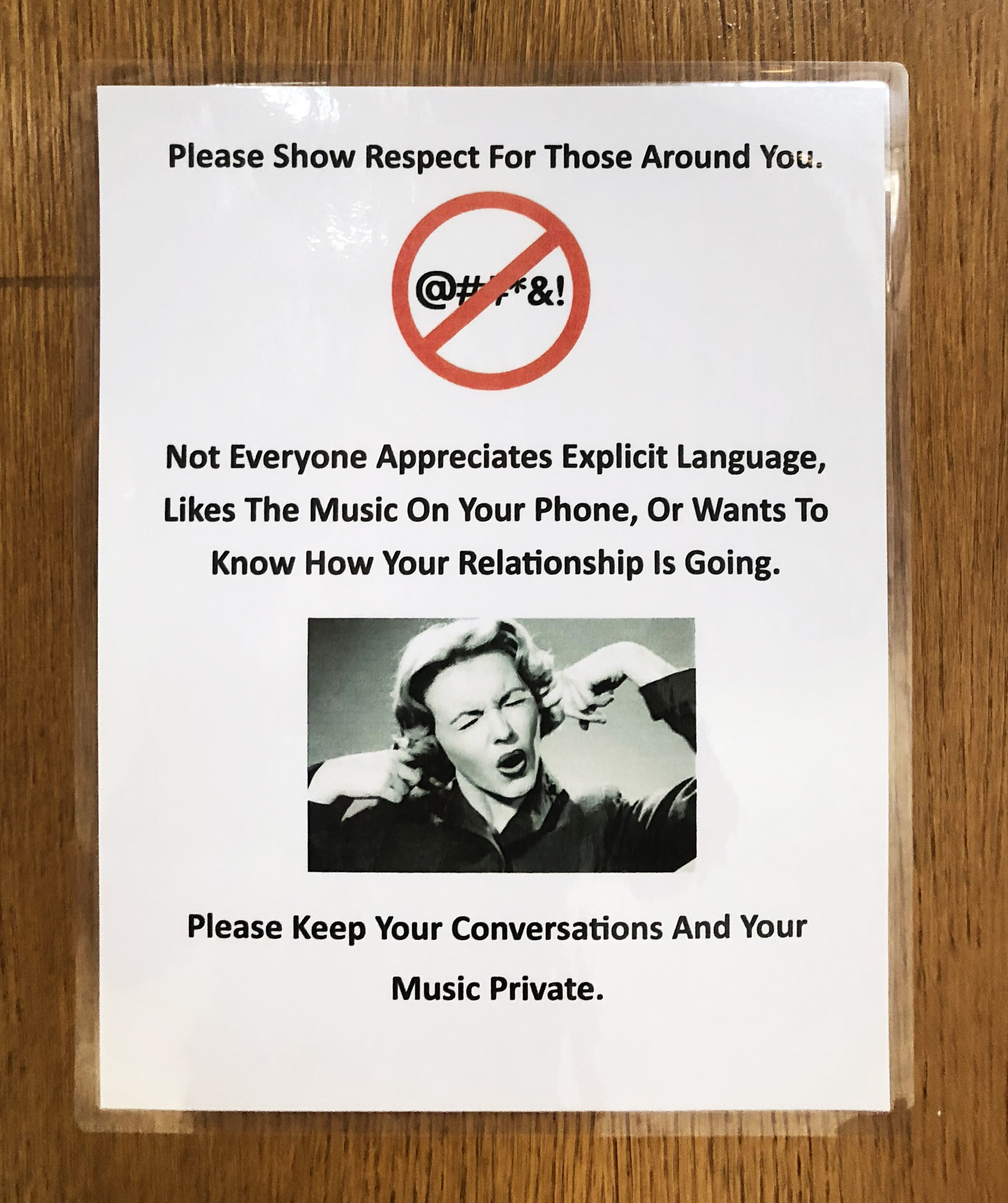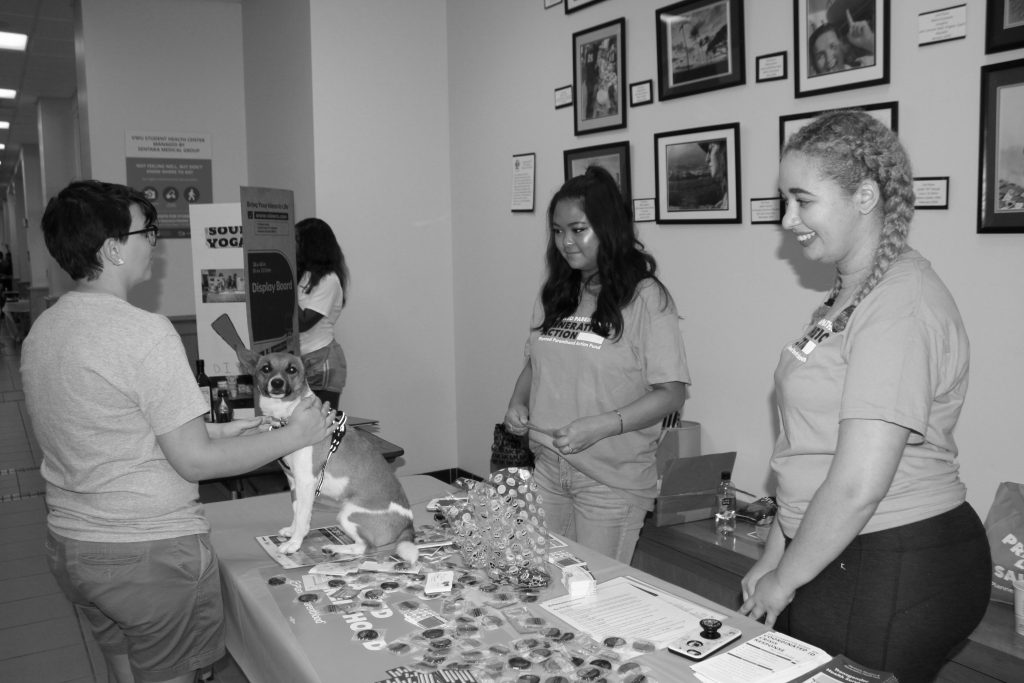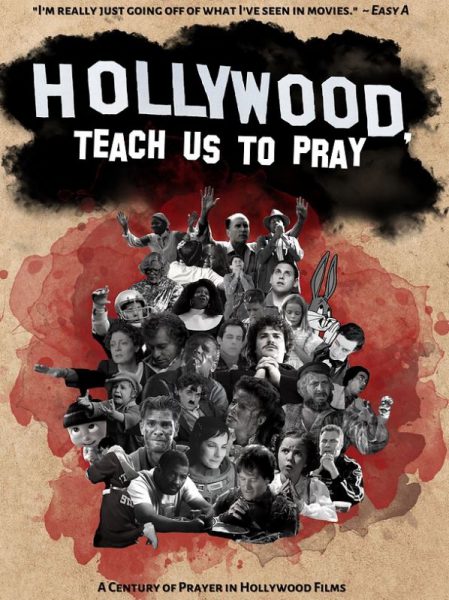Over the past semester, it has been come apparent that there has been an issue the playing of loud music and foul language. Dean of Students Jason Seward, assistant vice president of Student Affairs have been working closely with Student Government Association to advise the community of Virginia Wesleyan University to watch their words and not to blast music openly.
“The signs were put up by Student Affairs Staff because they wanted to make sure the language being used in a public venue like Batten was appropriate for large area ranges: i.e. children and parents/staff…,” said Nicholas Hipple, President of SGA and senior at Virginia Wesleyan University.
Last semester, Seward noticed an increase of private conversation in certain places of the campus that were an inappropriate use of graphic language turning public. As well, as the increase in popularity of bluetooth speakers. Rather it’s coming from someone’s backpack or cell phone it is increasingly disruptive to students who may be studying, class that are being had, or something as simple as a person eating lunch. He says,”…it has everything to do with being a community, that’s being respectful, that’s tactful, that’s tasteful.”
Batten is a busy place from morning to night. From visitors to tours to athletic competitions to faculty and staff walking, the space should be complemented with appropriate behavior. Most importantly the students that work, live, play here and these conversations that are usually taken place in the privacy of one’s living are displayed for public consumption. “Increase of inappropriate language and decrease in decorum,” Seward said, and he is not the only one who thinks that.
Brittany Hockey, Vice President of SGA and senior at Virginia Wesleyan said, “Some are embarrassed to bring their parents here because if you walk through The Grille somebody is dropping F-bombs like it’s “and”.” In some cases, students use the excuse or what someone may call it as “a part of American culture” and that curse words are just accepted language. Looking a little deeper, graphic language in business societal standards are frowned upon. For example, if someone was to use curse words during a business meeting, that person would be let got or asked to leave that meeting and dealt with later. To think of this situation as common knowledge to a community of higher learning, it surely lacks it.
The main reason is to catch to attention of the students. So putting them up place where students usually look is a great way to start. Seward’s idea is create an community of higher learning and positive empowerment, in order to do the, Seward said “We are recruiting agents of change…we need to enlist those who are very influential in our community among their peers and classmates.” In the turn of events, Seward wants to make it know that this is not a sort of enforcement that is one sided, but rather continuously brought up by any visitors that come through this campus, faculty, staff, students, etc. In addition to the signs, he addresses it first hand if he is in earshot of those specific conversations further stating that it make the community look “classless.”
There is a way of conducting yourself out in public and being that “agent of change,” such as if there is a sure color of a joke that is mad or inappropriate stories being told by friends that are becoming increasingly public, as a friend is expected to bring awareness in a respectable and mature way and have respectable understanding of why that was said.
“We are an institution of higher learning. We are a university. We are a community of different races, creeds, colors, but at the end of the day we have to be one that is appropriate, and some or the things that we have witnessed are concerning,” Seward ended.
Morgan Boyd
mnboyd@vwu.edu



